CUEB Hosts Thematic Forum of Global Digital Economy Conference: Unveiling Ceremony of Beijing Digital Economy Development Institute
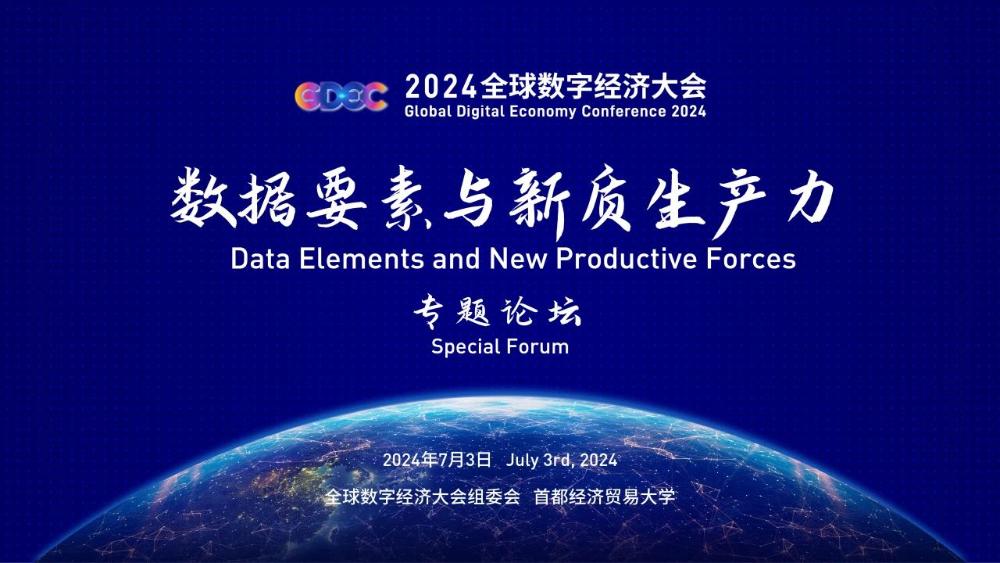
On the morning of July 3, the Forum on Data Elements and New Quality Productive Forces of the Global Digital Economy Conference was successfully held at CUEB. Organized by the Organizing Committee of the Global Digital Economy Conference and hosted by CUEB, the forum focused on the core role of data elements in fostering new quality productive forces to deepen the understanding of data elements and the digital economy while exploring innovative development paths for the digital economy.
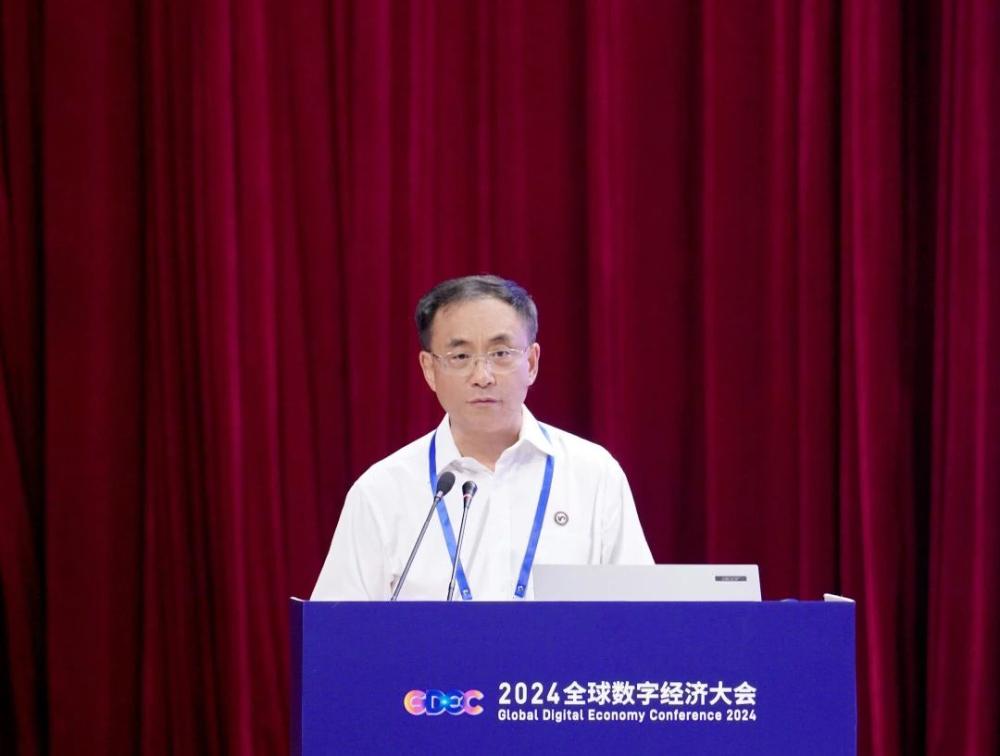
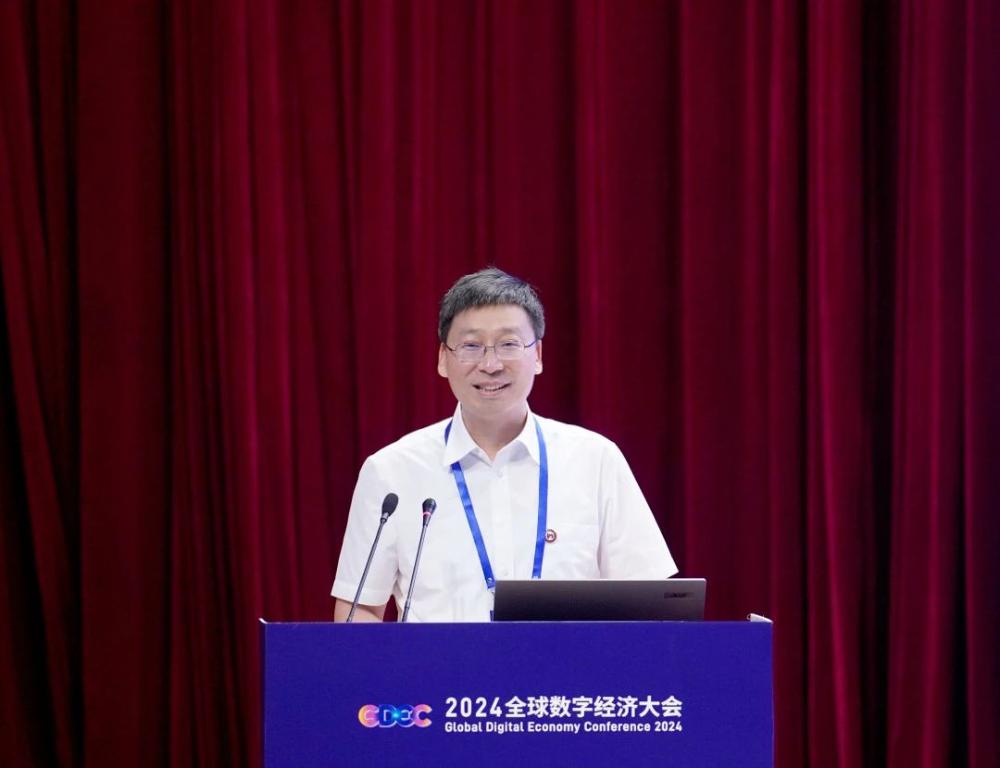
Wang Wenju, Party Secretary of CUEB, and Wu Weixing, Deputy Party Secretary and President, attended the forum and delivered speeches. Present at the forum were Hu Qiang, Director of the Confidential Affairs Bureau of Beijing Municipal Committee; Li Jianjun, Vice President of the Central University of Finance and Economics; Yang Liyan, Professor of the University of Toronto; Qi Yudong, Dean of the Business School of Beijing Normal University; Yasin Ozcelik, Dean of the Analytics Department at the Fairfield University Dolan School of Business; Luan Mingyue, General Manager of the Beijing International Data Exchange; Mao Zhenhua, Director of Institute of Economic Research of Renmin University of China; Huang Zhuo, Vice President of National School of Development of Peking University; and Hou Chengqi, Professor of Beijing Institute of Technology and Deputy Director of Academic Committee of Beijing Digital Economy Development Institute of CUEB. The forum was co-chaired by Yin Zhichao and Chen Yanbin, members of Party Standing Committee and Vice President of CUEB, and Ruan Jing, Director of Office of Development and Planning and Director of the Office of Discipline Construction. 700 teachers and students, including Du Wencui, Dean of School of Economics of CUEB, and Zhou Kaiguo, Dean of School of Finance of CUEB, attended the forum, and more than 5,000 viewers watched online.
At the opening ceremony, Wang Wenju thanked all the guests for their attendance and explained the significance of establishing the Beijing Digital Economy Development Institute. He emphasized that with the rapid development of digital technology, data elements play an increasingly important role in fostering new quality productive forces. He noted that studying how data elements foster these new quality productive forces holds high theoretical value and is an important practical task that deserves urgent attention. Since its establishment more than six months ago, the Beijing Digital Economy Development Institute has been committed to research and practice in the digital economy, achieving notable successes. With the construction of an interdisciplinary platform for the digital economy as the driving engine, CUEB will focus on the “Four Centers” of Beijing, which refers to Beijing’s strategic position as the national political center, cultural center, center for international exchanges and center for technological innovation. CUEB strives to become a contributor to the Beijing proposal on the digital economy, a leader in discipline construction, a cultivator of high-end personnel, and a builder of the capital’s think tank.
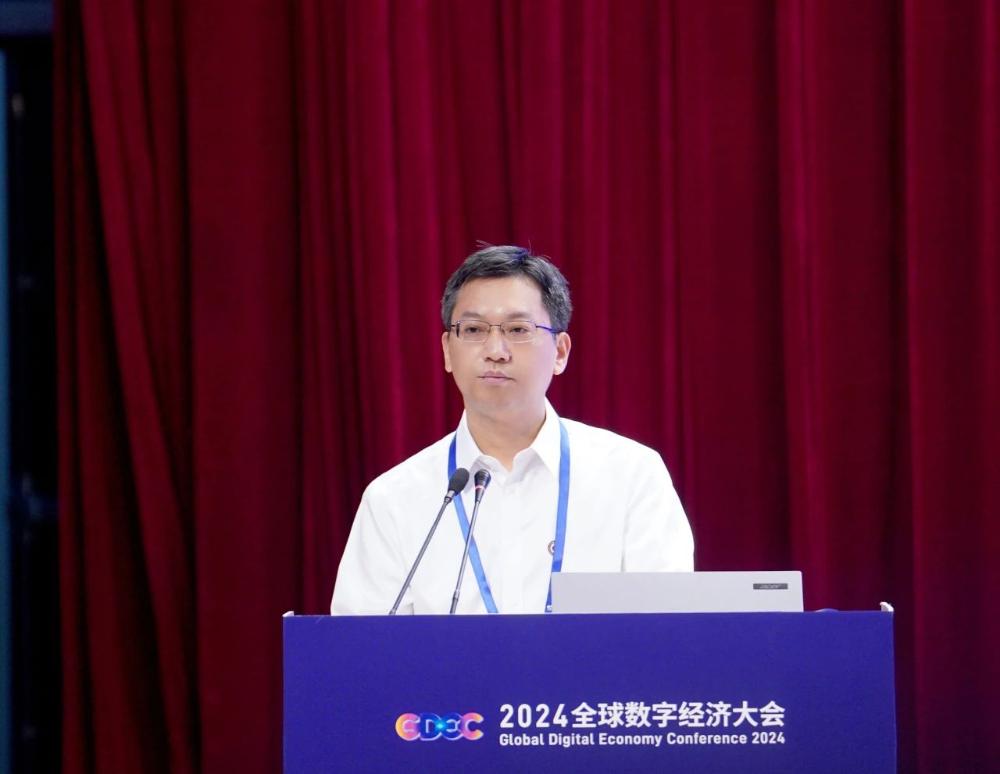
Chen Yanbin introduced the preparation process for the forum and the establishment of the Beijing Digital Economy Development Institute. This institute was founded in December 2023 to undertake an emerging interdisciplinary platform for the digital economy, approved by the Beijing Municipal Education Commission. It aims to become an innovative platform for scientific research in the digital economy, a top-notch platform for personnel cultivation, an integrated platform for disciplinary development, an open platform for international exchanges, and a public platform for advising on policy-making. In this context, it can contribute wisdom and strength to implementing the national strategy for digital economy development, building Beijing as a benchmark city for the global digital economy, and serving the high-quality economic and social development of Beijing.
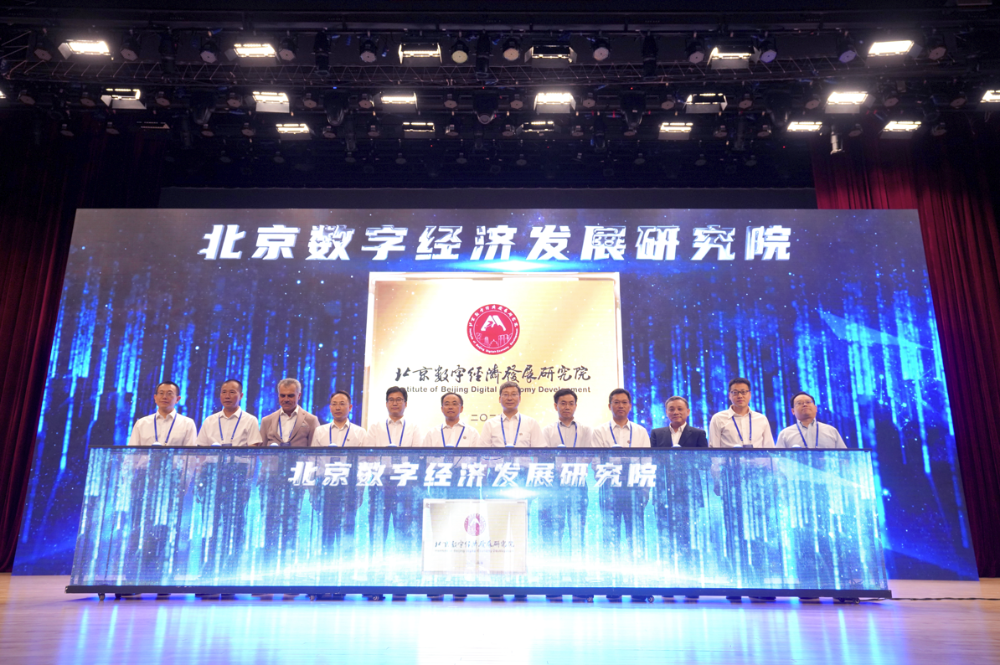
Then Wang Wenju, Wu Weixing, Hu Qiang, Li Jianjun, Yin Zhichao, Chen Yanbin, Qi Yudong, Yasin Ozcelik, Luan Mingyue, Mao Zhenhua, Hou Chengqi, and Huang Zhuo unveiled the Beijing Digital Economy Development Institute.
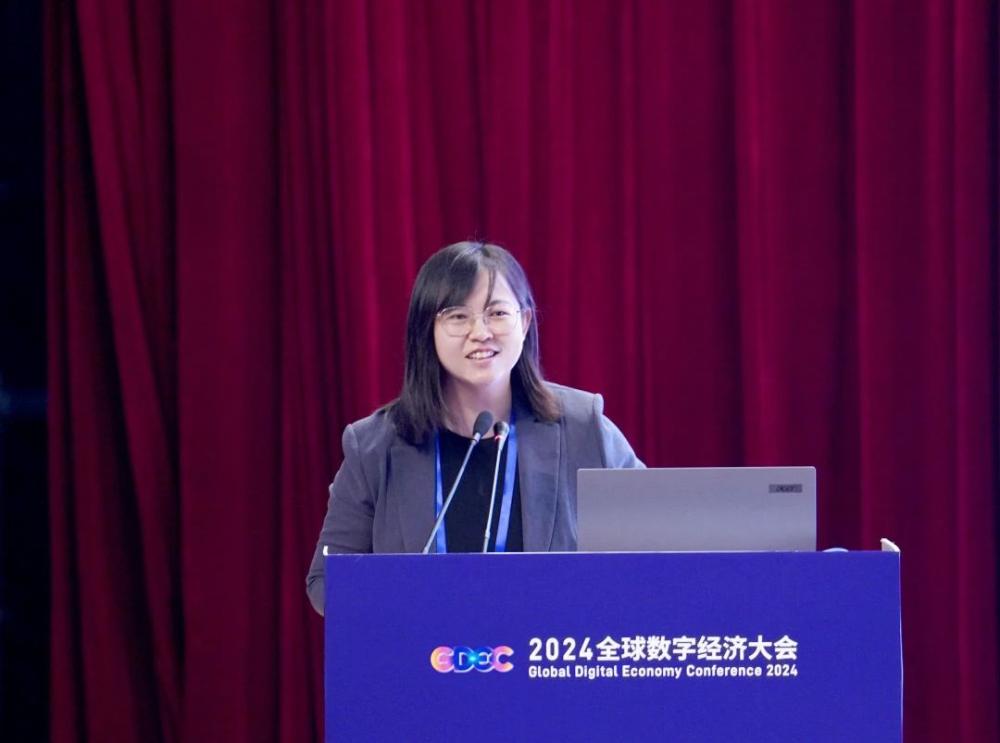
On behalf of CUEB research team, Du Wencui released the blue book of Annual Report On Digital Economy Of Beijing (2023-2024). The report comprehensively summarizes Beijing’s innovative practices and remarkable achievements in the digital economy, and calculates the comprehensive index of Beijing’s digital economy development. It clarifies that Beijing has ranked among the first global digital economy development echelons. The report puts forward 6 platform tasks for building a benchmark city for the global digital economy, and offers targeted countermeasures on digital scenarios, data elements, digital ecology, digital technology, digital finance, digital services, and digital trade.
During the report presentation, experts conducted in-depth discussions and shared their opinions on data elements and new quality productive forces.
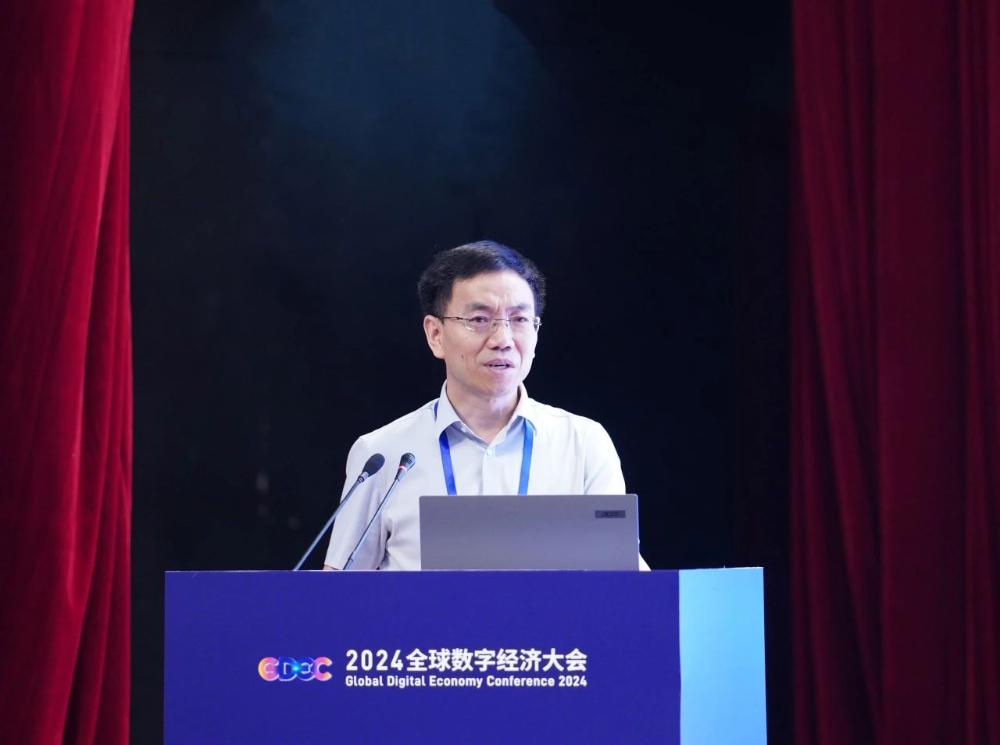
In the report The Internal Logic and Realization of Finance Enabling New Quality Productive Forces, Li Jianjun delved into an analysis of the new quality productive forces (hereafter the forces) from the perspective of macro development, examining the internal logic, challenges, and ways of finance enabling these forces. Li highlighted that finance can expand the development of the forces, stimulate consumption, and support industrial innovation by promoting optimal resource allocation and risk management. However, problems still exist in the structure, quality, factor supply and financial supervision. He suggested that priority should be given to optimizing the financial structure and investing more in sci-tech innovation, building a scientific innovation financing platform to cultivate motivation for R&D and make breakthroughs in “bottleneck” problems, promoting the supply of new factors to consolidate the foundation of the forces, improving the regulatory framework for sci-tech finance to prevent and mitigate risks.
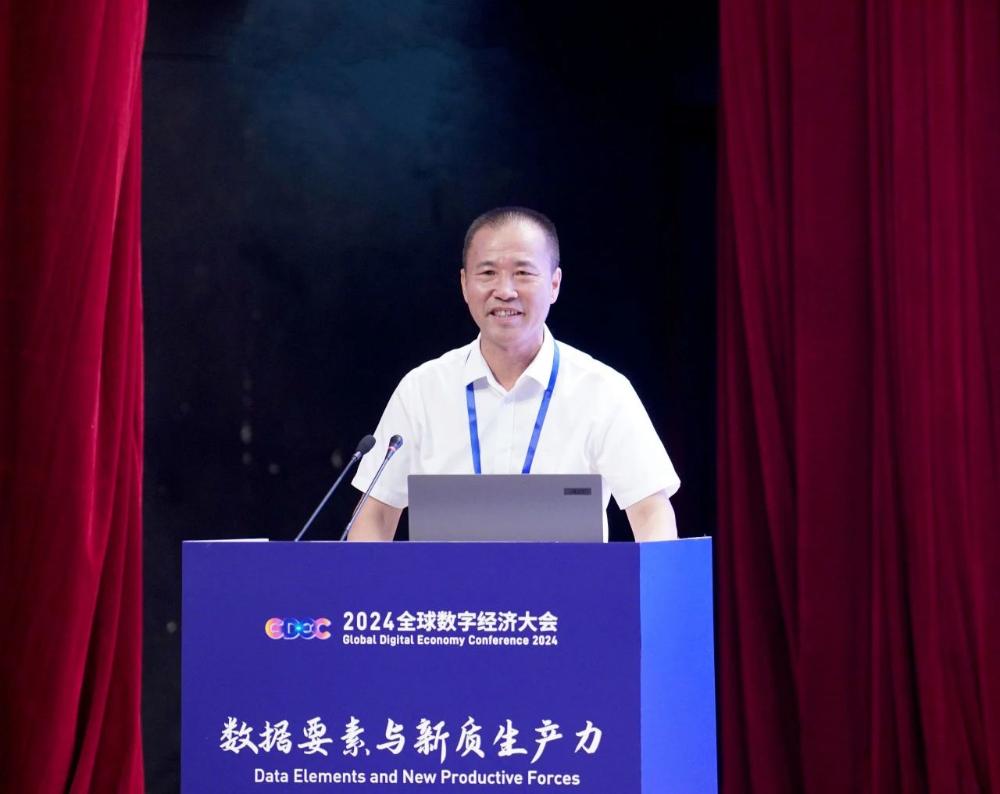
In the report Artificial Intelligence, Economic Growth and Employment Prospects, Qi Yudong analyzed the impact of AI on the economy and employment. Qi first introduced AI’s latest application in various fields and expounded the importance of AI technology in advancing contemporary scientific technology by taking specific examples. He believed that AI technology was driving the industrial revolution. Despite AI’s substitution effect on employment, human intelligence, morality, and judgment remain indispensable.

In the report Artificial Intelligence and Financial Market, Yang Liyan explored the impact of AI on the financial market. He noted that AI has blurred the traditional boundaries between humans and machines, with machines now capable of simulating human behavior and making decisions through trial and error and self-adjustment. He also introduced AI’s efficiency in algorithms and data processing while acknowledging its limits in understanding the market climate. AI has a huge impact on the stability, liquidity and effectiveness of the financial market, but it also introduces new problems concerning human-machine interaction. In addition, he discussed the prospects of AI in optimizing trading strategies and the possible impact on financial regulation and the behavior of market participants.
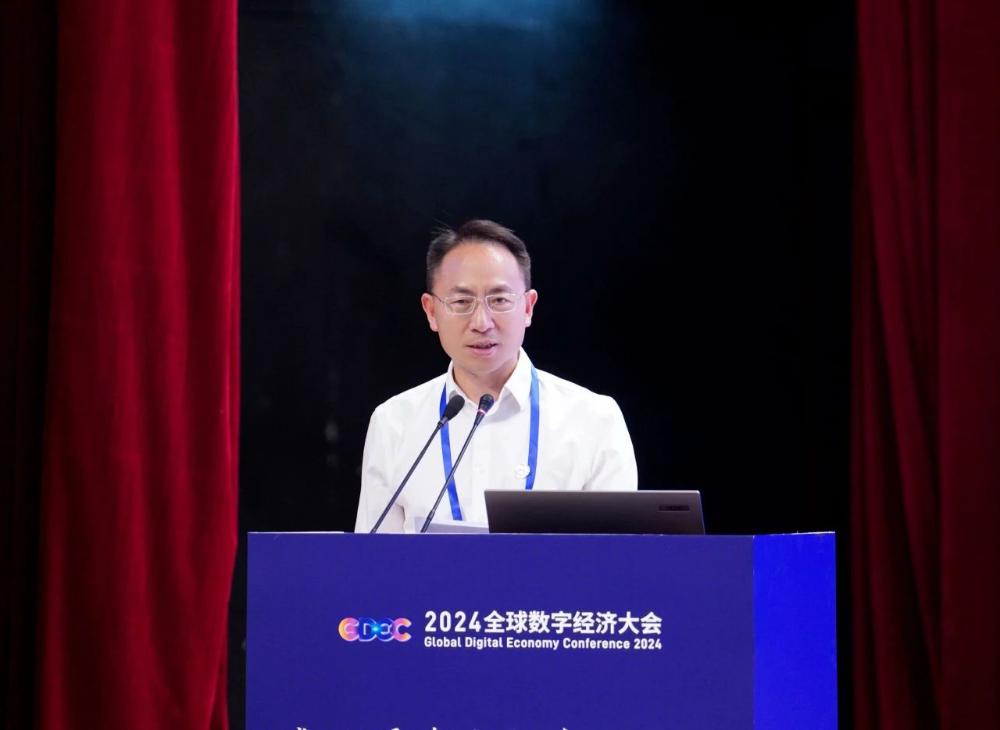
Yin Zhichao presides over the second keynote speech.
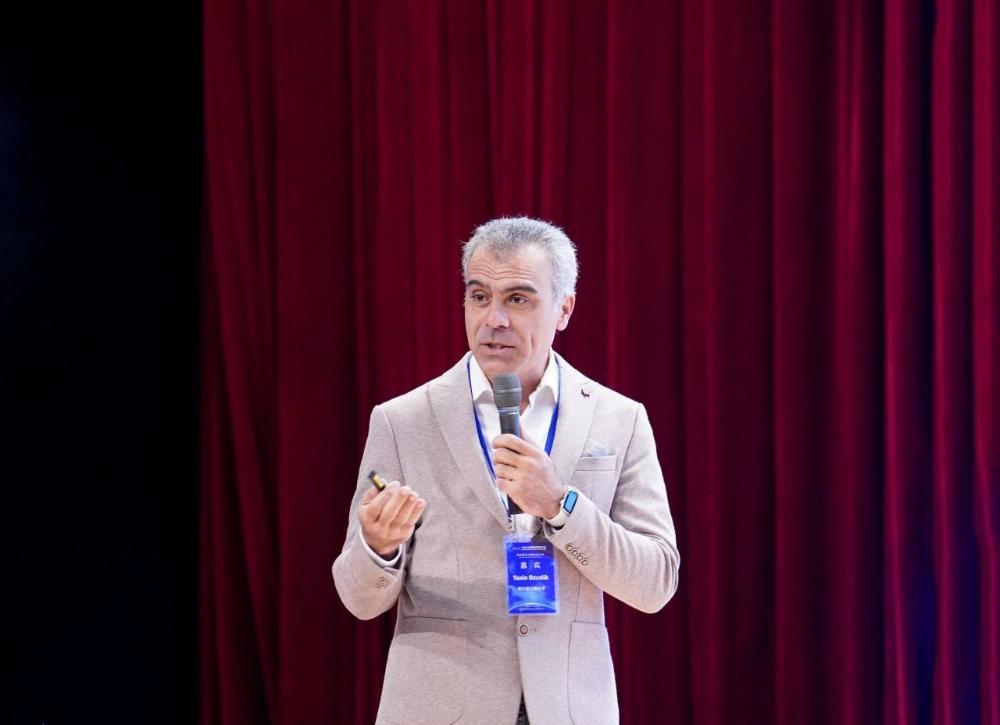
Yasin Ozcelik made a report titled Data and Productive Forces Paradox in the Global Digital Economy. He explained the role of data and productive force in the global digital economy, noting that despite increasing corporate investment in AI, global economic growth has slowed, prompting a review of the Productivity Paradox or Solow paradox. Based on data from the United States and European countries, he analyzed several possible explanations, including his idea that output estimates cannot fully show quality improvements in data and AI, and pointed to a Hysteresis effect between investment and productivity growth.

In the report Promoting the Data Elements Circulation and the Development of New Quality Productive Forces, Luan Mingyue elaborated on the importance of data elements as emerging production factors and their key role in promoting the development of the forces. Luan introduced the practice of Beijing International Data Exchange in building new models of data trading, developing new technologies and new scenarios, as well as their positive role in the market-oriented allocation of data resources. He also shared updates on data-related business, including trading, assets, and cross-border initiatives.
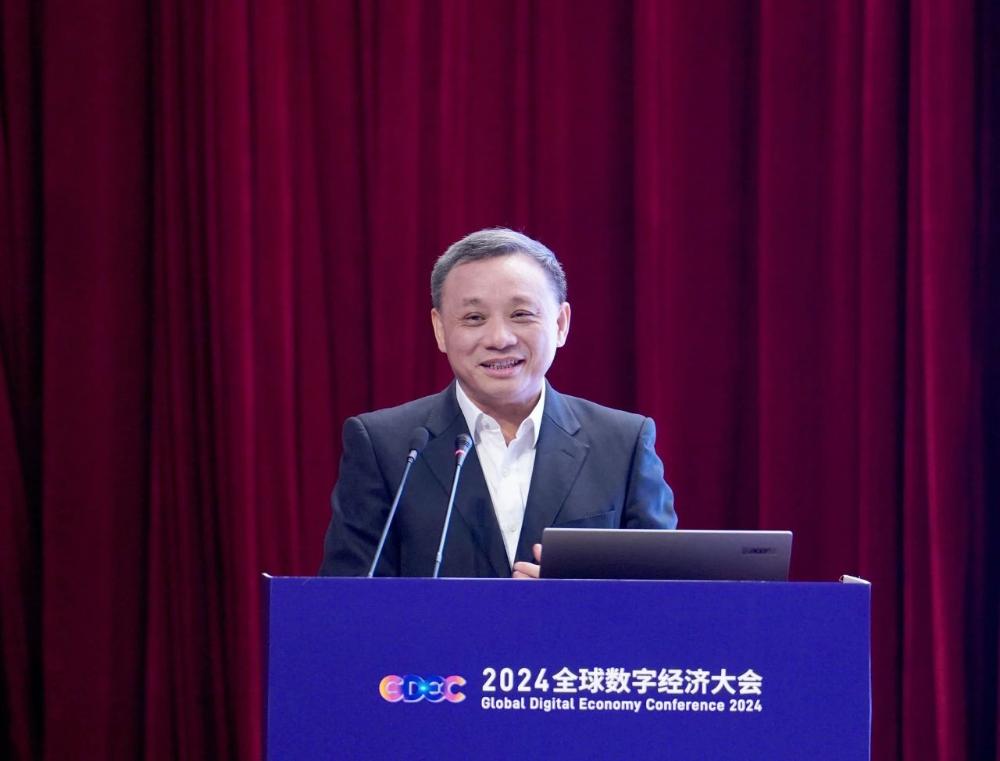
In the report Thoughts on Data as a Production Factor, Mao Zhenhua discussed the importance of data as a production factor in the modern economy. He argued that despite the diminishing marginal effect of traditional production factors, data elements give a new path for economic growth. He called for in-depth research on data elements, including data-related property rights, data trading, and revenue distribution to promote high-quality economic development. He called for more research on the industrial and supply chain of the data economy to maximize data elements’ contribution to economic advancement.

Ruan Jing presides over the third keynote speech.
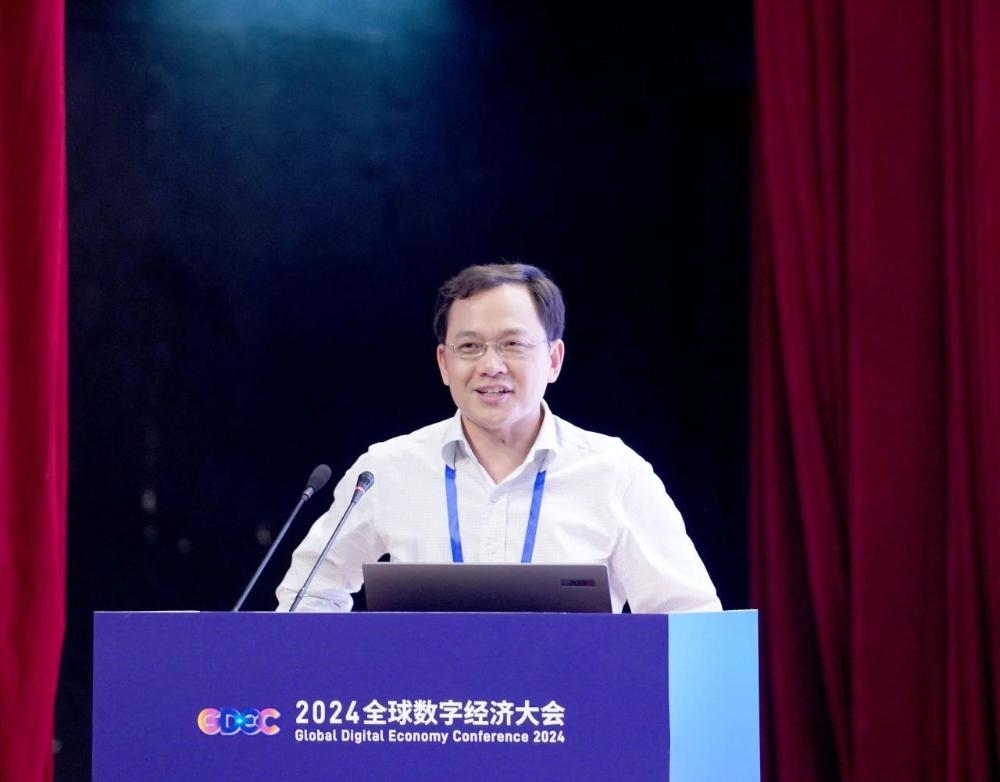
Zhou Kaiguo made a report titled The Digital Transformation of Commercial Banks by focusing on the importance of the digital transformation of commercial banks and its role in promoting the forces. He proposed that sci-tech innovation is the core of advancing the productive forces, with digital transformation as the key driver. The strong financial nation complements the new forces, with technology and digital finance serving as vital links between the two. He also discussed how data elements can promote financial innovation, reduce financing costs for firms, and enhance their innovation capabilities. He believed that with the industrial funds from both government and market, the chain of innovation, industrial and capital can be deeply integrated, thus promoting high-quality economic development.

In the report Data Elements and Digital Financial Development, Huang Zhuo analyzed the core role of data elements in digital finance. He highlighted that digital finance, with its dual attributes of finance and technology, has greatly made financial services more convenient and inclusive through innovations, such as mobile payment, online investment, and wealth management. This has notably alleviated the financing difficulties faced by small and medium-sized enterprises. Huang stressed that data not only reduce the threshold and cost of financial services, but also mitigate information asymmetry, thereby being the core competitiveness of digital financial services. He believed that the integration of AI signifies the financial industry’s transition from digitization to intelligence. In this process, building data markets and improving the data governance system are crucial to the application of financial technology.
In his closing speech, Wu Weixing expressed his sincere thanks to all the leaders and participants. He emphasized that in the context of popularizing global digital technology and industrial digital transformation, the digital economy has become an important force to reshape the global economic structure. He stressed that “data elements are the source of new quality productive forces and the digital economy points the way forward for future development.” By reviewing the important parts of the forum, he highlighted the role of Beijing Digital Economy Development Institute in providing a new platform for CUEB’s interdisciplinary studies in digital economy and emphasized the need for strengthened international cooperation to address challenges and achieve further breakthroughs in the digital economy domain. Wu concluded by reaffirming CUEB’s commitment to contributing to Beijing’s development as a global digital economy benchmark city.



